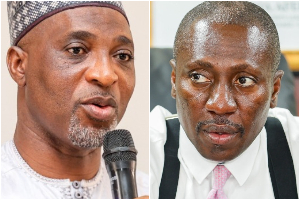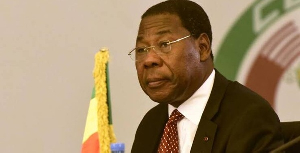There's no denying the fact that cost of living in Ghana has slightly risen lately - foodstuffs are in abundant supply, but their relatively expensive prices won't allow consumers have as much as they desire. This seemingly growing hardship is largely due to the ravaging impact of COVID-19 on the Ghanaian economy.
Be that as it may, our current situation isn't as bad as it was under John Mahama's administration between 2015-16 where a finger of plantain (size of a coca-cola bottle) was sold for GHs 5.00.
Since March last year when COVID-19 reared its ugly head in Ghana, this government has had to channel all its energy and resources in fighting the deadly pandemic. A healthy nation, they say, is a wealthy nation. It's against this backdrop that president Akufo-Addo, during one of his COVID-19 addresses last year stated inter alia, "we [government] know how to bring the economy back to life, but what we do not know is how to bring dead people back to life."
To mitigate the hardship, the government offered the citizenry free water and free electricity for six good months last year. Businesses were not left out; apart from the reduction in cost of utilities, they also received other COVID-19 stimulus packages, particularly, capital injection which kept them in operation. This intervention didn't happen under John Mahama when the country was bedeviled with power cuts which was a self-inflicted problem.
Even though we aren't out of the woods, it bears noting that this government has lived up to expectation in the COVID fight. It's trite knowledge that Ghana is the envy of countries across the globe. The Bretton Woods Institutions predict that it will take at least ten (10) years for COVID-19-affected economies to get back on track.
To shore up the economy, the Nana Akufo-Addo-led government, through the 2021 budget statement for the nation outlined a number of measures including abolishment of the Vehicle Income Tax to bring relief to the populace - majority of who patronize vehicles in one way or the other. Then there were slight tax adjustments (+1% NHIL, +1% VAT) to enable us to deal with COVID-19 effectively.
It's interesting how an admonition by a Technical Advisor at the Ministry of Finance urging public sector employees not to expect "huge" salary increments this year due to Ghana's limited finances occasioned by COVID has been twisted by the opposition National Democratic Congress to wage a political warfare.
This attempt by the NDC to incite organized labour against the government is rather unfortunate. Their selective amnesia stinks. Under John Mahama, the unresolved power crisis (Dumsor) led to the loss of over hundred-thousands of jobs. Sheer incompetence and mismanagement of the economy which landed Ghana at the IMF for a bailout led to a freeze on public sector employment which culminated in the formation of "Unemployed Graduates Association (UGA) - an unprecedented feat in Ghana's history.
Fast forward; the Akufo-Addo-led government, despite the challenges posed by a force majeure (COVID-19) is keeping faith with the Ghanaian worker - at least so far, no worker in the public sector has been sacked because of COVID, neither has anybody's salary been slashed. All that the government is saying is that workers should minimize their expectations; because we're not in normal times.
As and when things normalize, salary increments will come organically. This is what a prudent government does. Let's all sacrifice to make our country better.
Opinions of Saturday, 20 March 2021
Columnist: Sir-Obama Pokuase















